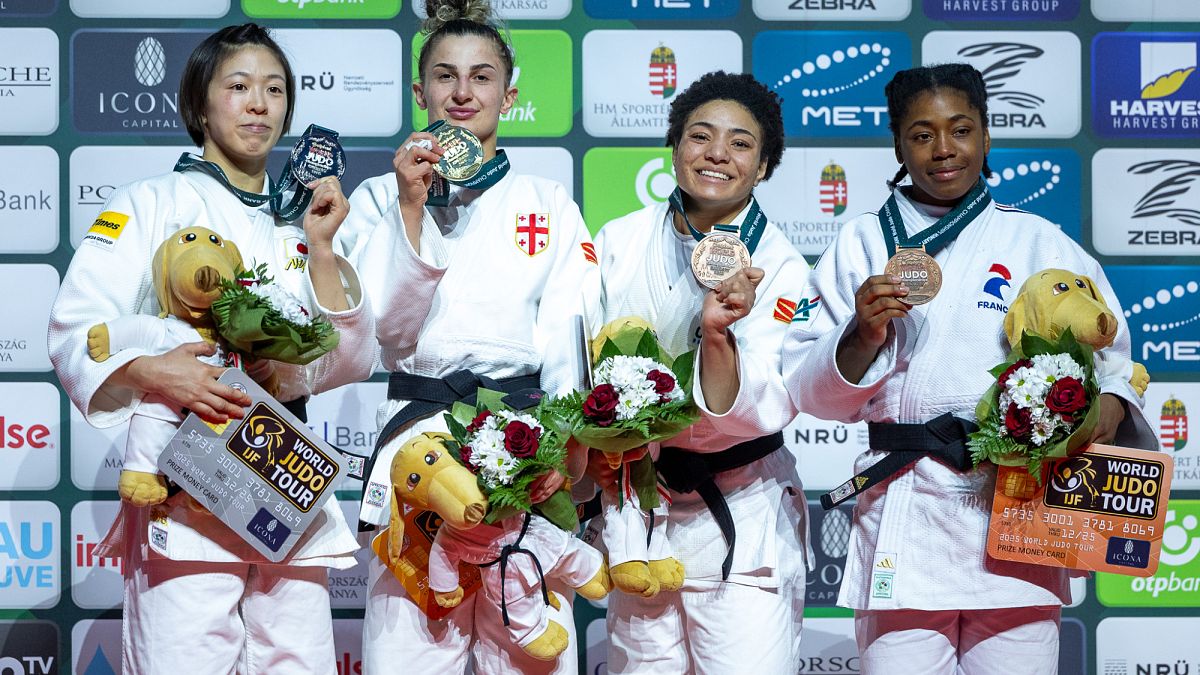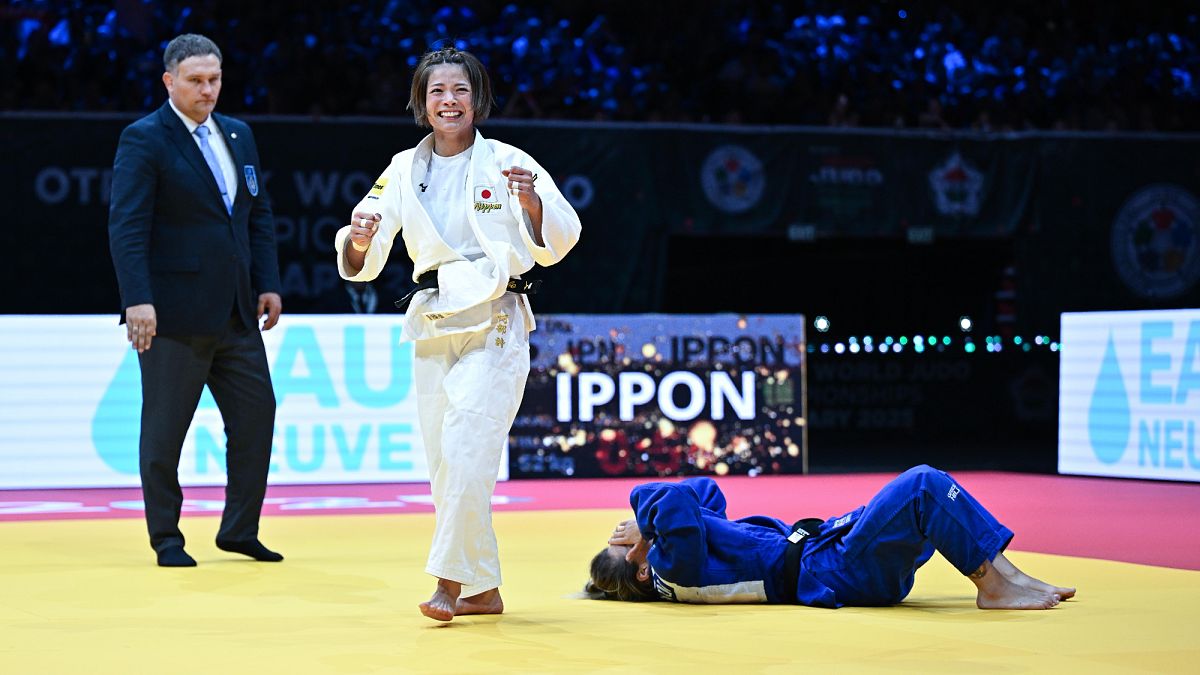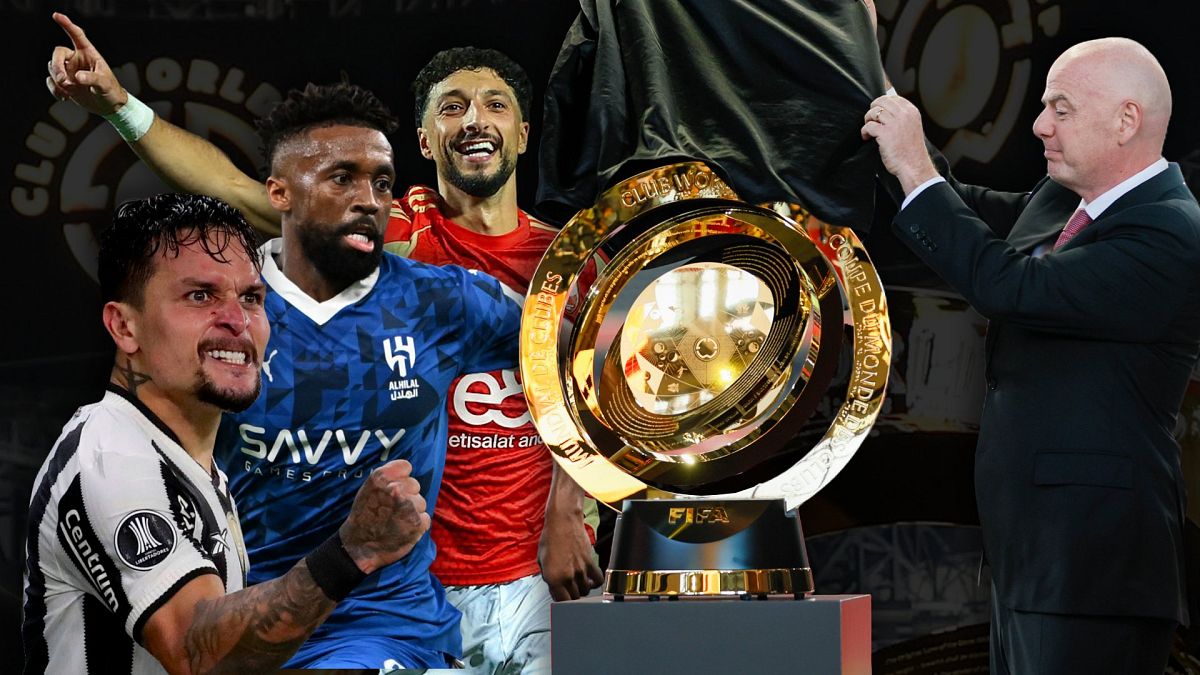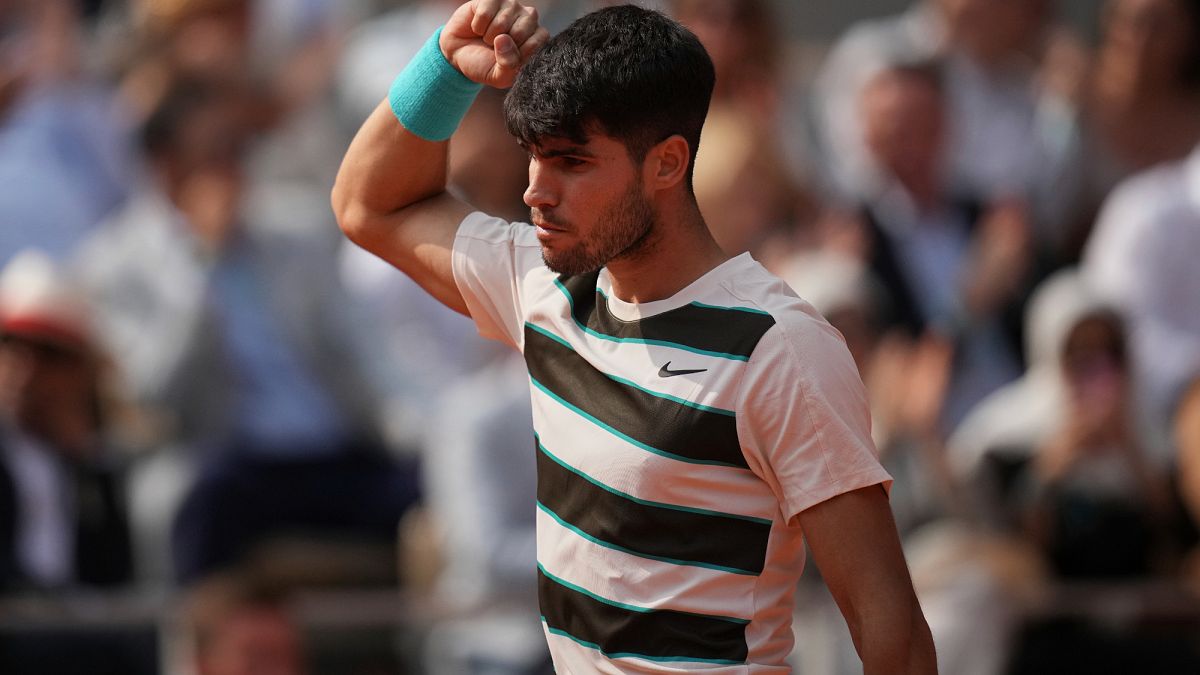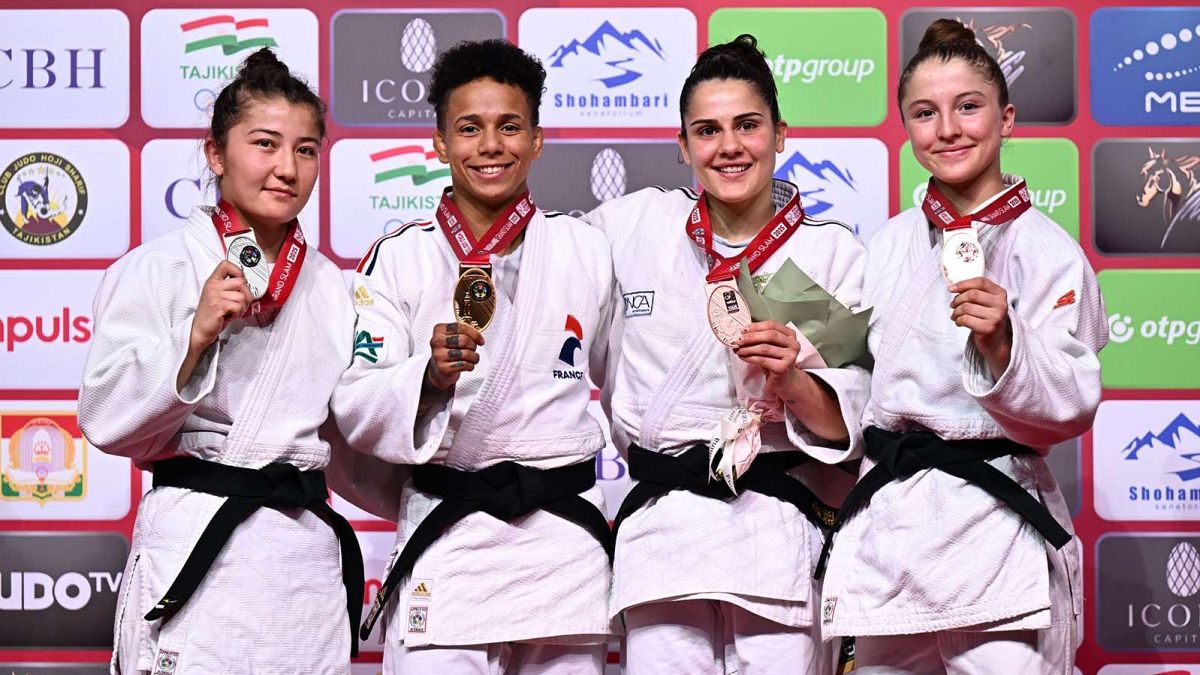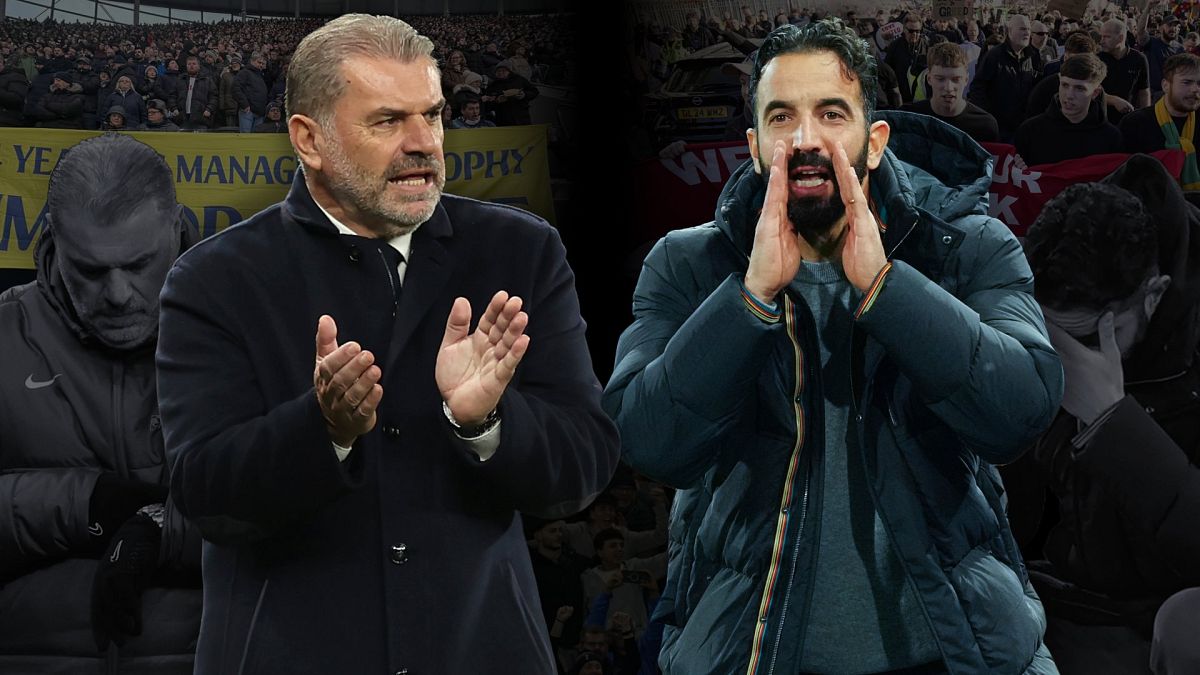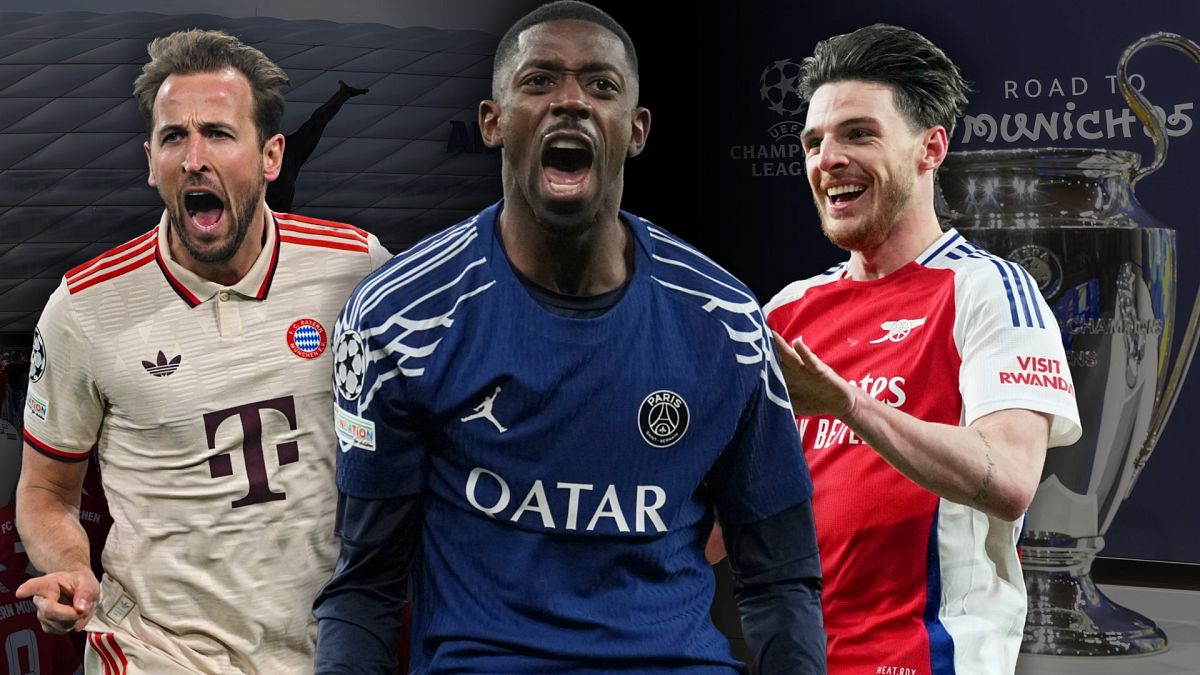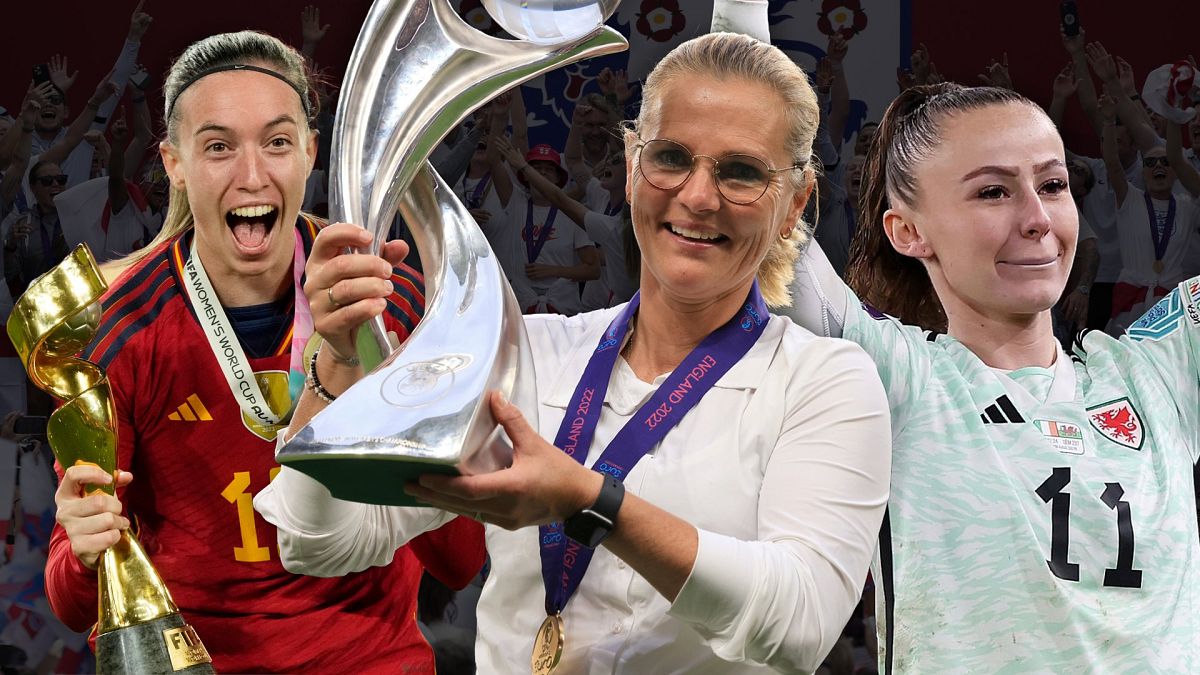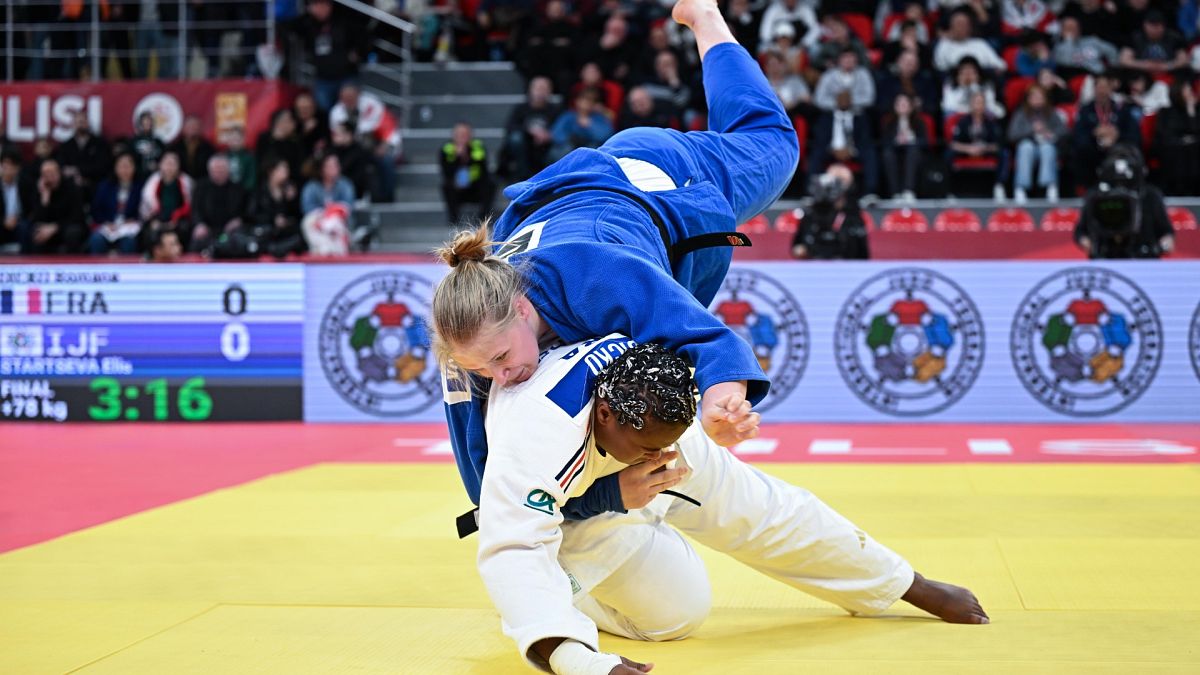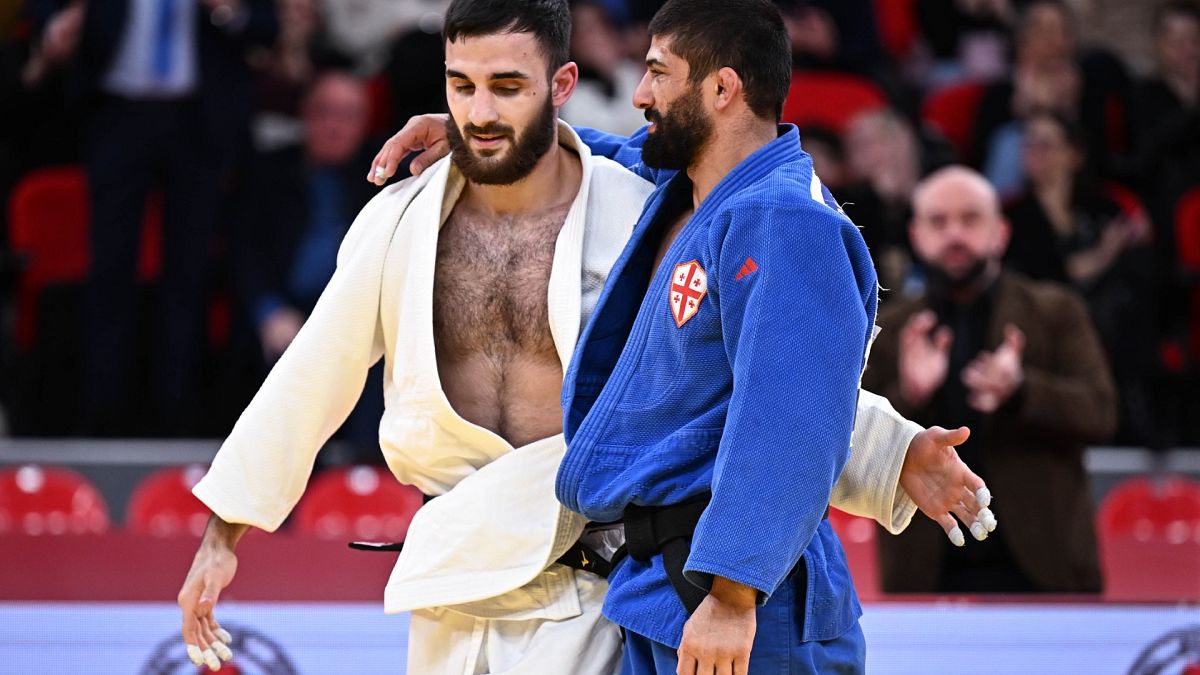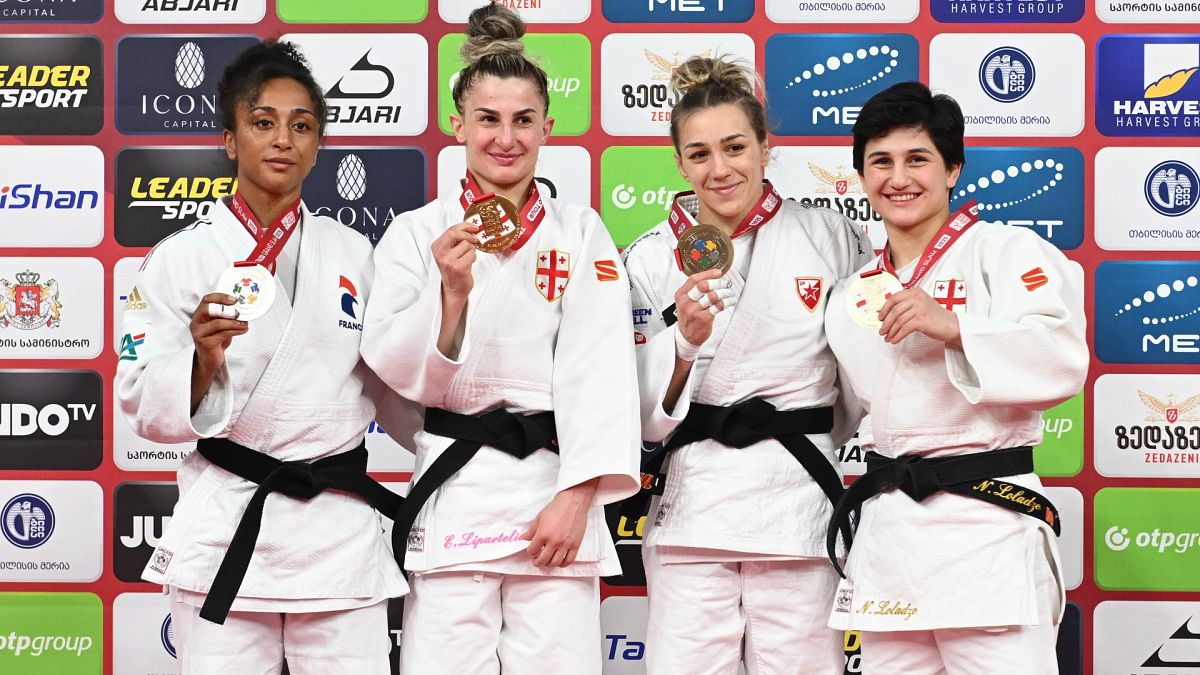Award winning actress Juliette Binoche: ‘Don’t go see just any film!’
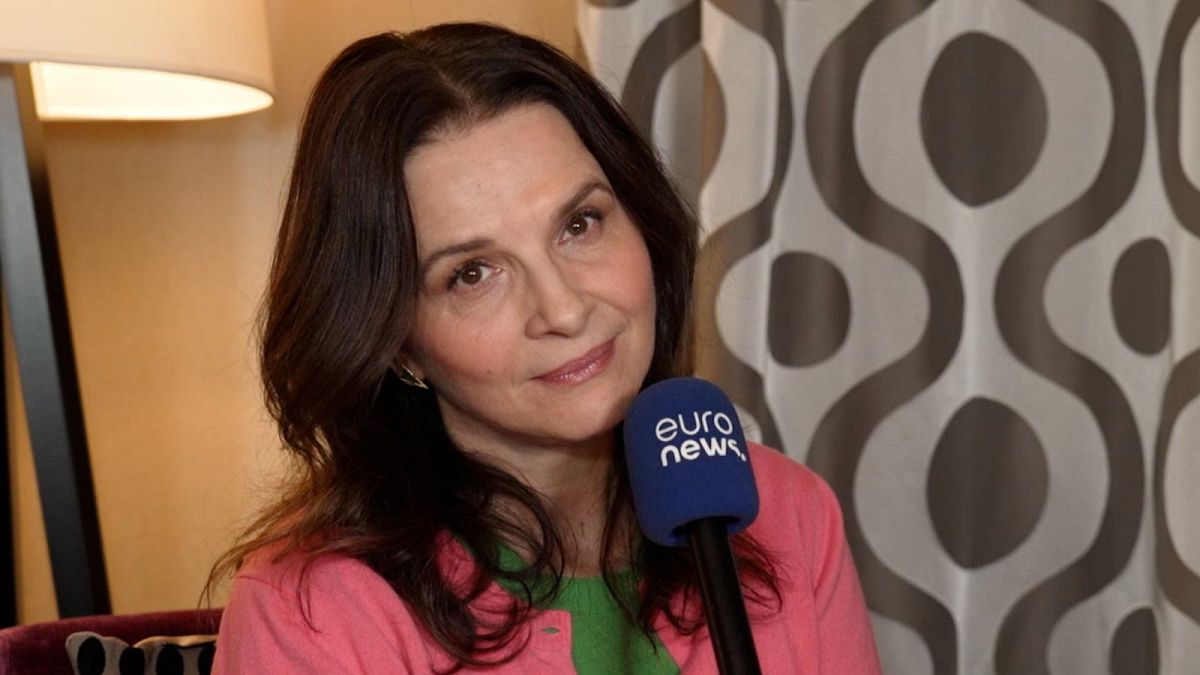
Euronews Culture sits down with award-winning actress Juliette Binoche, in her first year as President of the European Film Academy, to talk about cinema and the importance of choosing your filmgoing experience.
It’s rare to meet a movie star who’s done it all.
Juliette Binoche has close to 100 acting credits to her name, acting for the likes of Jean-Luc Godard (Hail Mary), Krzysztof Kieślowski (the Three Colors trilogy), Michael Haneke (Code Unknown, Caché), Anthony Minghella (The English Patient, Breaking and Entering), Olivier Assayas (Clouds of Sils Maria, Non-Fiction) and Claire Denis (High Life, Both Sides of the Blade) – to name but a few.
She’s been Mary Magdalene (Mary), a vagrant lover (Les Amants du Pont-Neuf), a limo vixen (Cosmopolis), a sculptor (Camille Claudel 1915), a nuclear regulations consultant running away from a pissed off kaiju (Godzilla), an endlessly quotable bourgeois on the verge of a nervous breakdown (Slack Bay), a weaponised AI designer (Ghost in the Shell) and Coco Chanel (Apple TV+’s The New Look).
It’s even rarer to meet an actress who has won it all.
An Oscar (The English Patient), a César (Three Colors: Blue), three European Film Awards (Les Amants du Pont-Neuf, The English Patient, Chocolat)…
She’s also the first actress to have ever completed “Europe’s Triple Crown”, winning a Golden Bear in Berlin (The English Patient), a Palme d’Or in Cannes (Certified Copy) and a Volpi Cup in Venice (Three Colors: Blue).
It’s one hell of a resumé. And quite how Caché and one of the most hunger-inducing films ever – last year’s The Taste of Things – didn’t add further trophies to her awards cabinet remains a mystery.
So, meeting Juliette Binoche is a daunting affair. Especially when the wait in the hotel room feels endless and you’ve only got 10 minutes to ask as many questions as humanly possible.
However, as bewitching as she is on screen, Binoche puts you at ease straight away, as she couldn’t be more approachable in person. Kind, humble, passionate and up for a giggle, it’s not difficult to see why she’s managed to become one of the most respected French and international actresses in the industry.
Having been elected thenew President of the European Film Academy in 2024, succeeding Agnieszka Holland as well as Wim Wenders and Ingmar Bergman before her, a new chapter of Binoche’s life starts. But she’s not about to let that get in the way of her work, as she reunited this year with Ralph Fiennes for Uberto Pasolini’s The Return, a magnetic retelling of Homer’s “Odyssey”, which is out in cinemas this month.
Euronews Culture caught up with Juliette Binoche at this year’s European Film Awards to discuss her new role, the state of European cinema, and the power films continue to have on audiences.
Euronews Culture: Congratulations on your new role as the President of the European Film Academy, especially considering your illustrious predecessors. What does this role mean to you, and how do you plan on making your mark on this institution?
Juliette Binoche: It means a lot. I’m very excited to be part of this group of people trying to fight for art in movies. The Academy was started in 1989 when the wall fell down in Berlin. It was the idea of reuniting the East and the West of Europe. And of course, this Europe extended itself because now we have lots of different countries that are part of the Academy, like Turkey, Ukraine, Russia and, Israel, Palestine and many other countries. So it’s a responsibility because it’s a cultural Europe and we’re trying to enhance all the possibilities for young filmmakers.
Your predecessor Agnieszka Holland cited wanting to focus more on filmmaking as her reason for leaving the role. Does this new position mean that your output as a performer will take the backseat for a while?
No, I don’t think so. I want to do everything! (Laughs) You know, there’s a board of members that are deciding the selection of the films that are going to be voted for by the members of the Academy, and I’m not part of that board. And it requires a lot of work because you have to watch a lot of films. I only have to work on the speeches and the lifetime achievement award speeches! There’s more to it, of course, and we’ve talked about ideas that I’ve proposed and they’re quite open to it. So, it’s on the verge of changing a little bit… We’re going to have a little Frenchy twist added to the mix!
Some of the European productions this year have been incredibly diverse: Emilia Pérez, The Seed of the Sacred Fig, The Room Next Door, Dahomey, to name but a few. They’re very entertaining but very engaged films – socially and politically. When talking to Agnieszka Holland last year, she mentioned that filmmakers need to take more of a stand, especially nowadays. Where do you stand on this?
I think she’s right. Europe has very different people, different languages and different points of view. We need to hear a lot of different expressions of what it feels like to be witnessing this. Especially in Europe. There have been a lot of wars in the past and we need these stories. And there are still a lot of wars going on, so we need to hear those stories, especially for victims not to be forgotten. I think it’s very much part of European films to fight for ideas and loving our differences.
There’s also a film this year, The Substance by Coralie Fargeat, which tackles how women are viewed and treated in cinema. It indirectly reminded me of Léa Seydoux’s comments about how easier it is to be in front of the camera as a female performer in Europe compared to Hollywood. Considering your career has seen you act in both Europe and the US, would you say that’s true? Is it easier to be an actress in Europe compared to Hollywood?
Well, I think I’m making films with a director, not a system. I can feel some of the dangers of being part of a system, and I felt it sometimes when I shot in America. They want to submit the film to studio approval, and you can feel that quite a lot when it comes to series. But I’ve been working with artists, whether they were on the American side or different sides. Each film is different and maybe because I’m older now and now I have more respect. (Laughs)
But in the 80s, you had to fight in a way. Today, there’s more awareness of what’s going on with nude scenes in a film, for example. But you have to use your intuition as an actress. You have to be able to say ‘no’ or ‘yes’ or ‘if I agree to this, then…’ We need to speak about our being, our lives. We cannot only make films with heads. The body is very much a part of the stories we have to tell. As an actress, you have to give yourself. But, each film and each experience is different.
You mentioned that there’s more awareness today and there have been a lot of changes within the industry. However, there’s still this slow and ongoing reckoning with #MeToo for example, and it’s been slower in Europe compared to the US. Are you seeing this evolution going in the right direction?
There’s been a lot of progress. A lot of women are speaking out and not a lot of men are doing the same. I think it needs to come out more. There have been young men who have been through difficult times on set and they never express it because… Because it takes more time. But I’ve seen a big change in the last couple of years. There’s been a big wave of speaking out. For example, now there’s the Assemblée Nationale in France (the lower house of the bicameral French Parliament) that is listening to a lot of cases. I didn’t want to go but they asked me to, so I’m going.
Why didn’t you want to go?
Because you don’t want to be public for that kind of situation. I understand the need for certain specific people listening and trying to understand what needs to be done, but it’s very hard because in an art form, there’s a trust that needs to be shared. If you only go through someone who’s going to give you the trust you’re supposed to have between the director and the actor, it’s… It’s very complicated.
You recently said something that stuck with me with regards to your ambitions for the future. You stated that a goal of yours is to re-humanize our society through cinema. Can you tell me a bit more about that?
Absolutely. I think that any art form has this possibility of touching someone’s life and putting things in question. I think a film or any art form can bring a question inside of your life. It’s a must. It’s a gift. And so, when going into a movie you’re going to a place, a mindset, a spirit. Words will stay with you, some emotion will stay with you, and it’s going to be enlightening. It’ll enlighten your life. It’s not going to resolve your life, but it definitely is going to do something. That’s why the choice of your film is so important. Don’t go and see just any film. You really have to pick up the film you think is going to be something – the film that’s going to change something in you.
It’s a worthy reminder, as there are so many films released every week…
Yes! You know, I’ll share something else with you… I was in New York yesterday and we were presenting The Return. There was a lady at the end of the screening – there was a party, and she said to me: ‘You have no idea how I changed after I saw Damage.’ I said: ‘Damage??’ You know, the Louis Malle film. I was very shocked, because the film is quite shocking. And she said: ‘It totally changed my life and I’ve never lived the same way after seeing this film.’ It’s the first time that somebody told me this. I’ve heard the same about Blue (Three Colors: Blue), I’ve heard it about other films I’ve been in, but this one was a surprise to me.
I think as an artist, if you can touch one person, only one person, it’s worth it. I really believe that. It works in you, on you, in your life – and that’s what film is about. It’s not just to have a parenthesis in which you enjoy yourself. Well, okay, it is, but it’s not enough for me. When I go and see a movie, I’m buying something, I’m spending time for it, so I want to have something for my life to be nourished, for my life to be different. For the film to open something up or to close something, but at least to have a reaction! And when it can be lived with others, it’s wonderful. Or by yourself, that’s wonderful too.
Films are really meaningful when they communicate inside of your family, or your partner, or your friends. There’s communication because it’s all about movement. It’s all about appreciating our differences and our different ways of thinking.
The Return is out now in cinemas. Click here more on this year’s European Film Awards.
Source: Euro News


